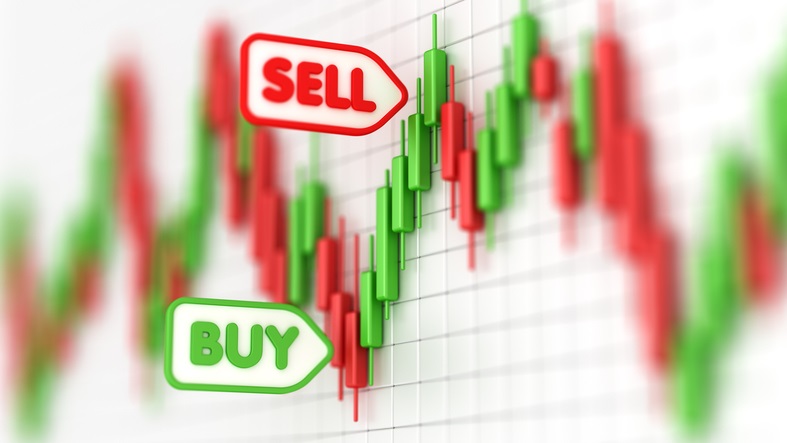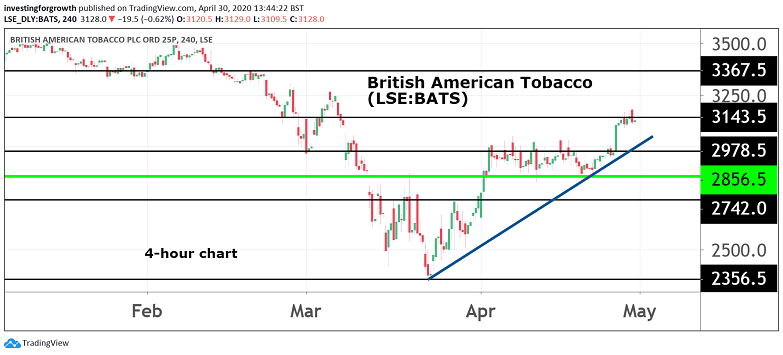FTSE 100 dividend stars step in after Shell shocker
Shell may have joined the legions who’ve cut dividends, but there are still great payers out there.
30th April 2020 14:04
by Graeme Evans from interactive investor
Shell may have joined the legions who’ve cut dividends, but there are still great payers out there.

The financial pain of FTSE 100 index dividend cuts is now being felt far and wide after Royal Dutch Shell (LSE:RDSB) today dealt the biggest blow yet for pension funds and income investors.
The dramatic decision by Shell to cut its quarterly dividend to 16 cents a share comes on the day that Sainsbury's (LSE:SBRY) deferred its annual award, meaning that around a third of top flight companies have now postponed or cancelled their pay-outs due to Covid-19 uncertainty.
The list includes all the major banks after lenders came under pressure from the Prudential Regulation Authority to show restraint. Lloyds Banking Group (LSE:LLOY), which posted first quarter results today, admitted this will cause “disappointment and frustration” for its army of small investors, particularly as it now won't revisit future pay-outs until the start of 2021.
- Lloyds Bank shares: what you need to know after Q1 profits dive
- A checklist for finding dividend shares in a crisis
All is not lost for income investors, however, with British American Tobacco (LSE:BATS) and Reckitt Benckiser (LSE:RB.) demonstrating their dividend qualities in trading updates today. But even these two FTSE 100 index stalwarts won't be able to make up for what has been the most shocking day yet in this year's so-called bonfire of dividends.
To put the Shell decision into context, the oil major and its rival BP (LSE:BP.) typically account for about a fifth of the payments made by FTSE 100 companies. Shell's divi has survived scares before, most recently during the last oil price downturn in 2015 when it was able to rely on its borrowings.
But never before has the outlook been this uncertain, with factories still closed, aircraft standing idle and crude futures in the United States testing negative territory. If Shell had to pull the trigger, though, most in the City thought the decision would have come later in the year.
UBS analyst Jon Rigby said today's 66% cut, which reduces the dividend yield based on last night's closing price to 3.4% from above 10%, was also bigger than most had contemplated. He added:
“We wonder whether the company took the opportunity to alter a pay-out that had perhaps become too challenging even in mid-cycle.”
The rebasing of the dividend should free up some US$9 billion over the next year, as part of a $30 billion war chest being built up to cope with the current crisis. And, even if Shell has lost some of its bombproof reputation, our own head of markets Richard Hunter points out the market consensus of the shares as a long-term buy remains unaffected.
- Royal Dutch Shell deals massive blow to income investors
- Take control of your retirement planning with our award-winning, low-cost Self-Invested Personal Pension (SIPP)
Shell is at least still paying a dividend, which is more than can be said for Sainsbury's after it deferred the payment from 2019/20 results until trading visibility improves later this year. Last time's final dividend of 7.9p was worth £174 million.
The deferral comes despite rival Tesco (LSE:TSCO) recently paying a dividend and supermarket grocery sales benefiting from a recent surge in demand amid pandemic stockpiling.
One factor that's likely to have swayed the decision is that Sainsbury's is eligible for £450 million of business rates relief on shops in England, Scotland and Northern Ireland. Sainsbury's said this government support will be used to offset materially higher operating expenses, particularly labour and instore costs that are set to continue for most of the summer.
Looking ahead to 2020/21 results, it forecasts that a possible £500 million profits hit from the crisis will be broadly offset by the business rates relief and higher grocery sales.
And while its financial services business is expected to make a loss due to rising bad debts and reduced travel money sales, it is not expected to need a capital injection from the wider group.
One income stream that investors can expect to continue in the coming year is the dividend from British American Tobacco. The high-yielding blue-chip stock reaffirmed its 2020 outlook today, with the company confident of delivering “another good year” of high single figure earnings per share (EPS) growth.
This will underpin the current dividend policy of paying 65% of adjusted EPS, which for 2019 resulted in a total dividend of 210.4p per ordinary share. This is being paid in four quarterly dividend payments of 52.6p per share, with the first due on 13 May.

Source: TradingView Past performance is not a guide to future performance
Reckitt Benckiser also looks in good shape to sustain its dividend payments after it said that 2020 trading was expected to be better than previously hoped. Unsurprisingly, it has benefited from strong demand for products such as Dettol and Nurofen, although the healthcare giant warned about the unwinding of ‘pantry load’ as the world works its way through the crisis.
In February, Reckitt announced a final dividend of 101.6p worth £721 million, which needs approval at its AGM on 12 May before payment on 28 May. The company has a policy of paying a dividend equivalent to around 50% of total adjusted net income over the medium term.
Full performance can be found on the company or index summary page on the interactive investor website. Simply click on the company's or index name highlighted in the article.
These articles are provided for information purposes only. Occasionally, an opinion about whether to buy or sell a specific investment may be provided by third parties. The content is not intended to be a personal recommendation to buy or sell any financial instrument or product, or to adopt any investment strategy as it is not provided based on an assessment of your investing knowledge and experience, your financial situation or your investment objectives. The value of your investments, and the income derived from them, may go down as well as up. You may not get back all the money that you invest. The investments referred to in this article may not be suitable for all investors, and if in doubt, an investor should seek advice from a qualified investment adviser.
Full performance can be found on the company or index summary page on the interactive investor website. Simply click on the company's or index name highlighted in the article.